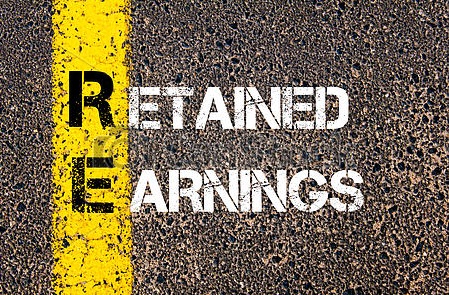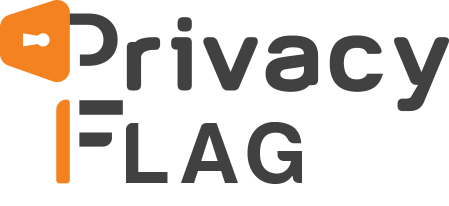The Offshore 1031 Exchange – Pay Zero US Tax on Your Foreign Real Estate Sale
Are you planning to sell your offshore rental or business property? Are you thinking about buying a similar property abroad (anywhere other than in the United States)? Then you need to understand the offshore 1031 exchange for foreign real estate transactions.
Here are the basics of the offshore real estate tax:
If you are a US citizen and sell an offshore property, you will probably owe the US IRS. It doesn’t matter that you have not lived in America for years or that the money never touches the US. You will often owe Uncle Sam a big piece of the pie.
We Americans are taxed on our worldwide income no matter where we live. We expats can use the Foreign Earned Income Exclusion to reduce or eliminate US tax on a salary or income from an active business. But the FEIE does not apply to passive investments or capital gains from real estate.
The only savings available for capital gains is the Foreign Tax Credit. You get a dollar for dollar credit with the IRS for any taxes paid to the country where the property is located.
If the capital gains rate in your country is equal to or higher than the top US rate of about 23.8% for long term gains (including the 3.8% Obamacare tax) and 38.6% for shot term (max ordinary rate), you will probably not pay taxes on the transaction to the IRS. You still need to report the sale on Schedule D and take the Foreign Tax credit, but you shouldn’t owe any tax.
— for the rest of this post, I will focus on short term capital gains from real estate.
Because the US has one of the highest capital gains tax rates, most clients get a nasty surprise on their US return when they sell an offshore real estate property. They get to pay both the local tax rate and then 10% or so to the IRS.
- Many have been hit hard by the IRS for their foreign real estate transactions. For example, the London Mayor Boris Johnson recently bowed to the IRS collection machine.
Of the OECD countries, only Denmark (42%), France (34.4%), Finland (33%), Ireland (33%), and Sweden (30%) have higher rates. The average capital gain rate in OECD countries is 18.4%. What’s more, nine OECD countries do not tax capital gains at all.
Here’s an example of selling a property in a country with a low capital gains rate:
Let’s say you bought a property in Colombia 5 years ago and will now sell it at a gain of $100,000. You’ll pay Colombian capital gains tax at 10%. You will then receive a credit for foreign taxes paid to Colombia of $10,000 on your US return. Because the US rate is 13.8% higher than the Colombian rate, you’ll also pay $13,800 to the IRS for the right to carry a US passport.
For more detail on US taxation of foreign real estate transactions, please read: Taxation of Foreign Real Estate Investments.
The Offshore 1031 Exchange
Here’s how you can use the offshore 1031 exchange to pay zero US tax on your foreign real estate transaction. There are many rules to follow, but we take care of most of the compliance and documentation items for you.
Here’s what you must do to ensure that the transaction qualifies as an offshore 1031 exchange after you sell your foreign real estate property:
- You must exchange your foreign property for another foreign property or properties. This means you can exchange your rental property in Panama for an office building in Colombia or France if you like. You may not exchange your foreign property for a US property.
- You must identify the exchange property or properties to us in writing within 45 days of closing on your sale property. We require a dated and notarized letter to ensure compliance.
- You must close on the exchange property within 180 days of the sale of your property. If the cash remains in the custodial account for even one day beyond the 180 day limit, the entire transaction is void, all of the tax benefits are lost, and stiff penalties will apply.
- You may not receive any cash from the transaction until after the purchase of the exchange property has been completed. All cash must be held by a qualified intermediary until the entire transaction is completed. * See comments below for more information.
— A partial offshore 1031 exchange is acceptable. You are not required to exchange your sale property for one of equal or greater value. You may exchange it for one or more properties that total to less than the sale price. Of course, this will reduce the tax benefit of the offshore 1031 exchange, but it is permissible under the rules.
— Even if you are going to purchase an exchange property for less than the sale property, you can’t receive any cash until the entire transaction is completed.
- Surprisingly, you may exchange your property with a related party such as a family member, business associate or relative. If you set up an offshore 1031 exchange with a related party, the only limitation is that the property may not be sold for two years. In other words, a 1031 exchange with a related party adds the requirement that you must hold the exchanged property for at least two years.
- The person who sells the property must be the same person who buys the exchange property. So, a husband can’t sell a property in Panama and his wife buy a like-kind property in Colombia. If H sells the property, H must buy the exchange property.
— However, you may use a different offshore company to by the exchange property. This can be a very important distinction when structuring an offshore 1031 exchange because of the local tax rules around holding title in a foreign company.
— The offshore company must to structured as a disregarded entity for US tax purposes.
— For example, if H sells a property in Panama, he may buy a property in Colombia in his name or in the name of an offshore company structured as a disregarded entity.
* There are three ways to deal with the cash issue in an offshore 1031 transaction as described in #4 above (referred to as the constructive receipt rule).
You can hire any of the US based 1031 exchange providers. This will require your buyer to wire funds to a US intermediary rather than you. It also means that all of the cash in the transaction will be held in a US bank, in the name of the US firm, and subject to US government inspection.
As most expats have no interest in placing the transaction in the hands of Uncle Sam, and no non-US buyer wants anything to do with a US based 1031 exchange, here are you other options.
The most common is to bring in a licensed and bonded offshore trust company to act as the intermediary. If you would like to use a licensed provider in Belize for your transaction, I will be happy to introduce you. Note that the 1031 exchange can be processed through any licensed provider and need not be completed in your country of sale or exchange.
The second option is to ask a bank in your country to create a three way trust account. Funds from the sale will be deposited in this trust account in your name. In order to release the funds, three signatures will be required: 1) a professional offshore 1031 exchange intermediary, 2) yours, and 3) the bank officer.
— This option requires a minimum of three signatures to avoid the constructive receipt rules of IRC section 1031 subsection g(6). Therefore, cooperation of the banker is typically required. None of the signatures may be related to you in any way. They may not be a family member, your attorney, your accountant or tax preparer, or anyone who has done work for you in the last two years.
Option 1 is common when escrow is the usual way to transfer real estate in your country and when the transaction is denominated is US dollars.
Option 2 is used in countries where escrow is not common and the buyer expects to pay the seller directly. It is also used when the transaction is denominated in the local currency… especially a volatile currency.
Documents Required for an Offshore 1031 Exchange
When hired to manage an offshore 1031 exchange, we typically prepare the follow documents:
The Exchange Agreement: A contract between you and the Qualified Intermediary that sets out the rules and guidelines. This must be followed to the letter in order to complete the 1031 exchange.
Notice of identification: A notarized legal notice must be sent from you to the Qualified Intermediary advising him that you have identified a property. The purpose of the legal notice is to prove you identified the replacement property within the required 45 days time frame.
An Assignment: An assignment of the sale to the Qualified Intermediary is required. This is in necessary because, in theory, the Qualified Intermediary steps into your shoes and sells the property.
Purchase Notice: A notice to the party on the other side of the transaction advising them that the transaction is indeed an offshore 1031 exchange. The purpose of notification to the other party is to prove, without doubt, that the 1031 exchange was in place at the closing.
Who Should Consider an Offshore 1031 Exchange?
Let me start with who should not use an offshore 1031 exchange. If your local capital gains rate is equal to or higher than the US rate, there is no benefit to an offshore 1031 exchange. The offshore 1031 exchange does not reduce your local tax, only your US taxes. If you pay 23.8% or more in local capital gains taxes, your US taxes should be near zero considering the Foreign Tax Credit.
If all parties to the transaction are US persons, and you don’t mind sending your cash to the US, then an offshore 1031 exchange might not be for you. A custom 1031 exchange completed offshore will be more expensive than one done by a 1031 exchange mill in the US.
Next, I suggest the gain on your foreign real estate sale should be at least $50,000 before you take on the costs and effort of an offshore 1031 exchange. If the gain is less than $50,000, the costs will take up a significant portion of the tax benefits.
This means that anyone:
- who is selling a property in a country with a low or zero capital gains rate,
- who will net at least $50,000 from the transaction,
- who intends to purchase a similar property within 180 days,
- and who would like to maintain some modicum of privacy offshore, should consider an offshore 1031 exchange.
December 2019 Update – The above article is for information purposes only. We do not offer 1031 exchange services. I’m not aware of any firm providing global 1031 services.








